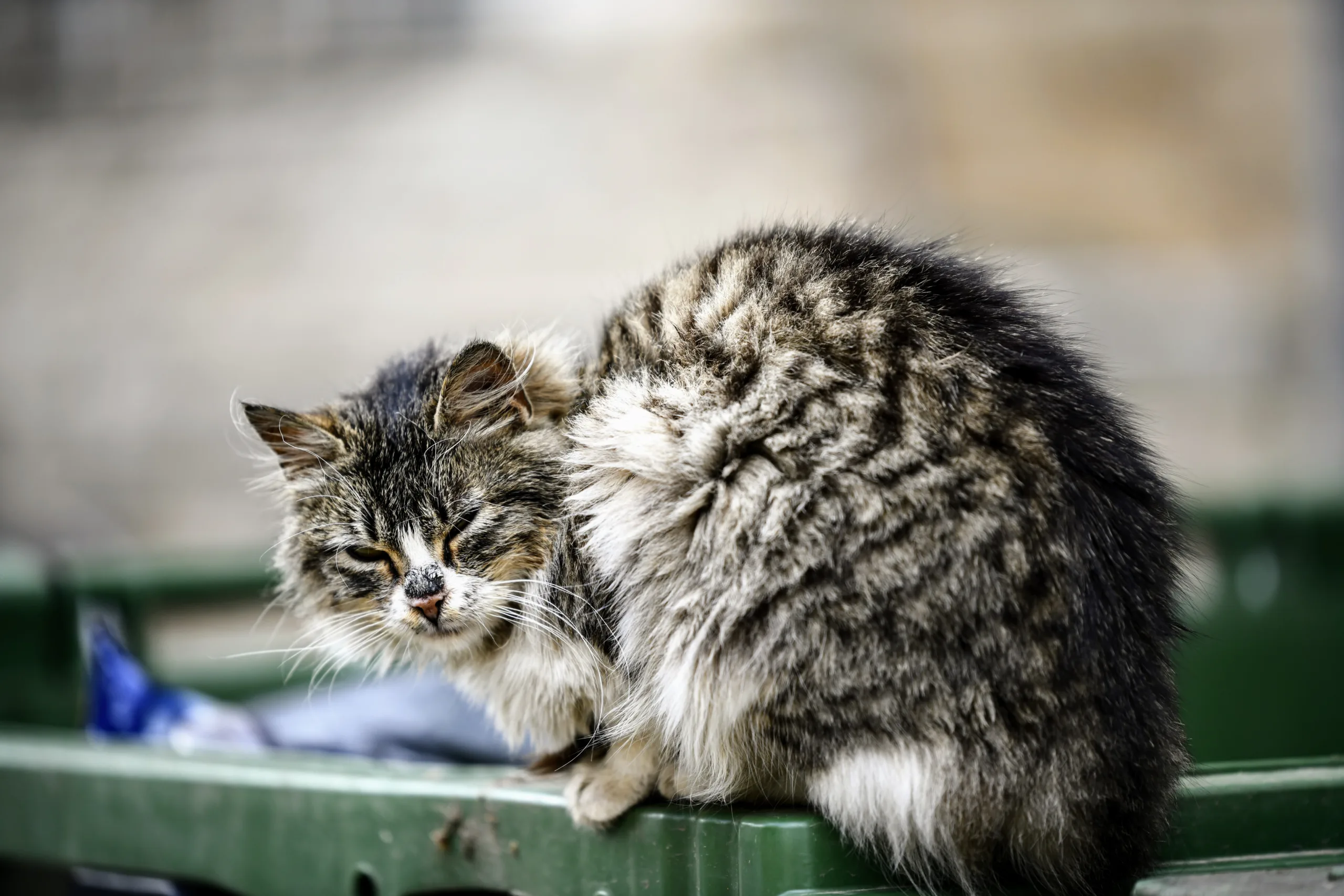Cats have fascinating and sometimes puzzling behaviors, especially when they are in heat. One of the common questions cat owners have is whether cats pee more frequently or in unusual places when they are in heat. This article will delve into the intricacies of cat behavior during heat and address the concerns about urination and marking.
For more about cats click here
The Heat Cycle and Cat Behavior
The heat cycle, also known as estrus or mating season, is a natural physiological process that female cats go through. During this period, which can occur every two to three weeks, a cat becomes receptive to mating and may exhibit various behaviors associated with attracting potential mates.
1. Increased Vocalization: Female cats in heat are known for their increased vocalization. They may yowl, meow, and make other loud sounds to signal their availability to male cats.
2. Restlessness and Agitation: Cats in heat may display restlessness and agitation. They may pace around the house, act more fidgety, and have difficulty settling down.
3. Attention-Seeking Behavior: Female cats may seek more attention from their human companions during heat. They may rub against you more often, purr loudly, and try to engage in close physical contact.
4. Increased Affection: Some cats become more affectionate during heat, seeking more petting and cuddling than usual.
5. Urine Marking and Spraying: One behavior commonly associated with cats in heat is urine marking and spraying. This behavior serves as a way to communicate their fertility to potential mates and establish territory.
Urine Marking and Spraying During Heat
Urine marking and spraying are distinct behaviors that serve different purposes in the feline world. While both behaviors involve releasing urine, they have distinct characteristics:
Urine Marking: Urine marking involves a cat leaving small amounts of urine in strategic locations to establish territory and communicate with other cats. It is often done by both male and female cats and may occur outside the heat cycle as well.
Spraying: Spraying is a behavior in which a cat stands with their tail upright and sprays a vertical surface with a small amount of urine. This behavior is more common in unneutered male cats, and it is often associated with territorial marking and attracting potential mates.
FAQs: Addressing Common Questions
Q1: Do female cats pee everywhere when in heat?
Female cats may have an increased urge to mark during heat, but it doesn’t necessarily mean they will pee everywhere. If you notice unusual urination behavior, it’s essential to rule out medical issues and consider providing additional litter boxes and cleaning up promptly.
Q2: How do I stop my female cat from spraying in heat?
Spaying your female cat is the most effective way to prevent spraying during heat. Spaying not only eliminates the risk of unwanted litters but also reduces the hormonal triggers for spraying behavior.
Q3: Why do male cats pee when in heat?
Male cats, especially unneutered ones, may engage in urine marking and spraying behavior to attract potential mates and establish territory. This behavior is driven by hormonal changes and the instinct to communicate with other cats.
Q4: Why is my female cat peeing everywhere?
Unusual urination behavior can be caused by various factors, including medical issues, stress, changes in the environment, and territorial behavior. If your female cat is peeing everywhere, consult with a veterinarian to determine the underlying cause.
Q5: Does heat make cat pee worse?
While the heat cycle can influence a cat’s behavior, it doesn’t necessarily make their urination worse. However, some cats may exhibit increased urine marking or spraying behavior during heat to attract mates or establish territory.
Q6: Does heat make cat pee smell stronger?
The scent of a cat’s urine can vary based on factors such as diet, hydration, and health. While the heat cycle may not directly impact the smell of the urine, changes in behavior, such as urine marking or spraying, can lead to a stronger odor if not addressed promptly.
Understanding and Addressing Cat Behavior
Understanding your cat’s behavior, especially during the heat cycle, can help you provide appropriate care and minimize any unwanted behaviors. It’s essential to observe your cat’s actions, be attentive to any changes, and consult with a veterinarian if you have concerns about urination, marking, or other behaviors. Spaying or neutering your cat can also play a significant role in preventing hormonal-driven behaviors and ensuring their well-being.
Click here for more
